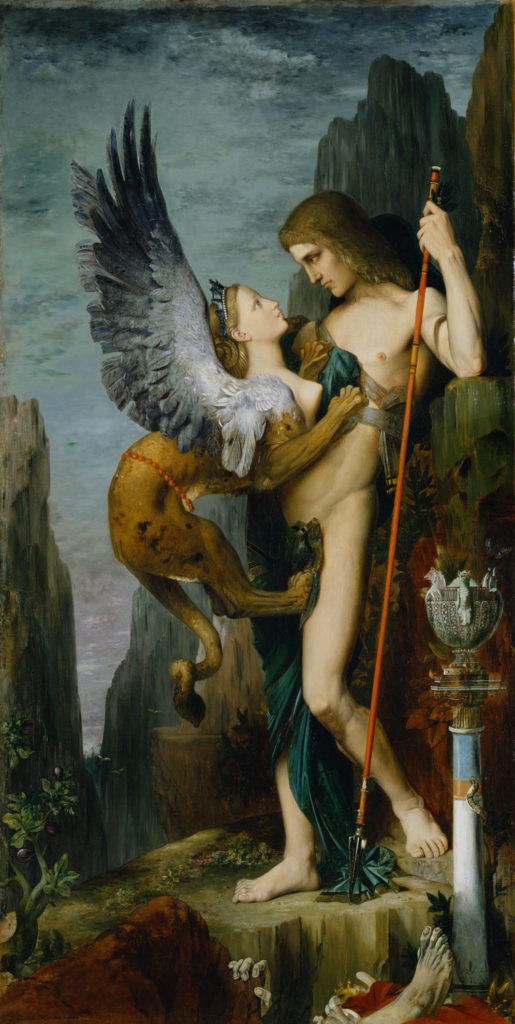
Wednesday
The strangest development in the Trump Ukraine scandal may be the way that Trump himself has given us the smoking gun—which is to say, the rough transcript of a phone call where he tries to shake down the Ukrainian president for dirt on the 2020 political opponent he most fears. Jon Meacham attributes Trump’s self-reveal to hubris reminiscent of a Greek tragic hero. Trump, like Oedipus, thinks he can always impose his will.
Facing a plague in his city and informed that it’s been caused by the unpunished murder of the previous king, Oedipus demands investigation after investigation. Accustomed to getting whatever he wants, he runs roughshod over people who suggest that he back off. Just as underlings like Vice-President Mike Pence tried to persuade Trump that the transcript would harm him, Teiresias, Creon and Jocasta say the same about Oedipus’s investigation.
If the latter fail, it’s because Oedipus is so convinced of his righteousness and so used to having his own way that he insists all the facts come out. If Pence and others failed, meanwhile, it’s because Trump believes he can make his own reality. Of course, Oedipus learns to his sorrow that he himself is the cause of the plague, having killed the king his father and married his mother.
That’s where the similarities end. Oedipus, self-absorbed though he may be, genuinely wants what is best for his city. Furthermore, when he discovers that he himself is the murderer for whom he seeks, he accepts full responsibility. He is a great man, for all his shortcomings.
Trump, on the other hand, was so convinced that he could get away with self-dealing that it didn’t matter if the public saw him strong-arming a foreign leader for personal gain. Thus, he falls at one end of the spectrum Aristotle sets up to determine what makes up a tragic hero.
As Aristotle sees it, the greatest tragedies move us to pity and fear—we cry for the hero and fear his or her fate. This hero can neither be a perfect individual nor a villain. Trump is clearly a villain:
Nor, again, should the downfall of the utter villain be exhibited. A plot of this kind would, doubtless, satisfy the moral sense, but it would inspire neither pity nor fear…
If Trump goes down, we won’t view his fall as tragic, even though it will satisfy our moral sense. By contrast, Oedipus elicits our sympathy in spite of being imperfect:
There remains, then, the character between these two extremes,—that of a man who is not eminently good and just,–yet whose misfortune is brought about not by vice or depravity, but by some error or frailty. He must be one who is highly renowned and prosperous,—a personage like Oedipus, Thyestes, or other illustrious men of such families.
So yes, Trump has Oedipus-like arrogance and, in that respect, the impeachment drama resembles a Greek tragedy. If he didn’t think he could escape all accountability, we would never have seen the telephone transcript, just as Thebes would never had learned the identity of Laius’s killer had Oedipus backed off. After that, however, the similarities end.